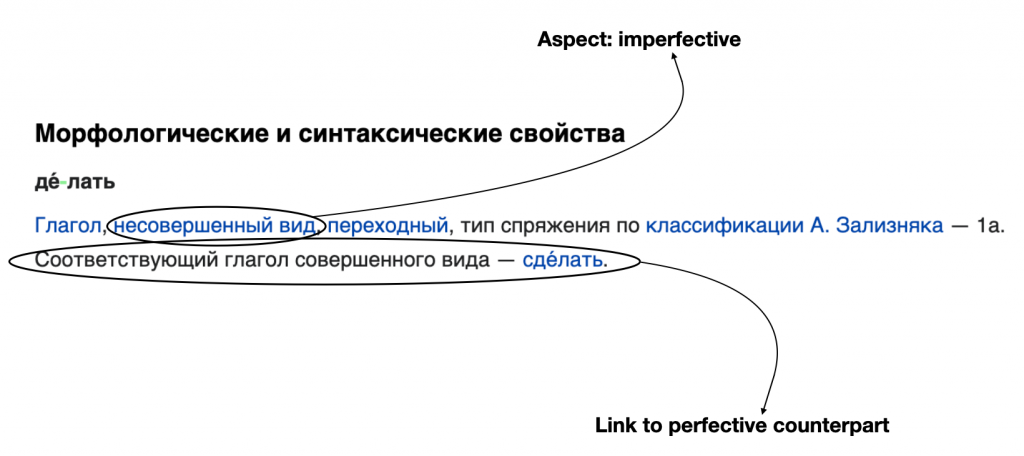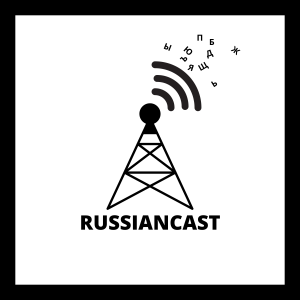What are perfective and imperfective verbs?
Each verb in the Russian language is either perfective or imperfective. I recommend learning words in pairs: when you learn an imperfective verb, look up its perfective counterpart and vice versa. The most reliable way to know if the verb is perfective or imperfective is to check it in a dictionary, i.e. the Wiktionary, which provides the following information.

Perfective vs imperfective verbs
The general meanings of Russian ‘perfective’ and ‘imperfective’ can be outlined as follows.
Perfective verbs have a general meaning of a completed action or a completed process, that’s why perfective verbs cannot be used to describe actions (processes) as continuous nor as repeated/habitual. Perfective verbs describe actions (processes) as a whole with an emphasis on the endpoint.
Imperfective verbs don’t have this meaning – the actions (processes) described by imperfective verbs have not been completed. Therefore, they can be represented as continuous, repeated/habitual. Imperfective verbs don’t describe actions (processes) as a whole: we don’t know when the action (process) began or when it’s going to end, we only know that it happens, is happening, or will happen. Imperfective verbs describe the action (process) in general.
Are there any rules?
The Russian speakers don’t follow any specific rules as they choose one aspect over the other. They intuitively present an action/process in a way they see fit in a specific situation. Some of these instances may be described as rules, but sadly not all of them. The use of perfective and imperfective verbs depends on multiple factors. One of the main factors is the form of the verb: the rules are different for for infinitives, the present, past, or future tenses, and for the the verbs in the subjunctive and imperative moods. Another important factor is the words used in the sentence (e.g., the word ‘никогда’ is only used with imperfective verbs in the past tense, but can be used with either in the future with a difference in meaning).
In my opinion, it’s better to study as many specific cases of use in specific contexts, rather than trying to ‘understand’ the difference between perfective and imperfective verbs from the very beginning, which will most probably lead to mistakes, because there is no single explanation which can be applied to the multitude of usage instances. For example, in the sentence
Ты когда-нибудь смотрел (imp.) этот фильм?
only an imperfective verb is possible in the past tense, even though one might think that it’s supposed to represent a completed action. For a Russian speaker, this is just ‘an action in general’. However, in the future tense, either aspect is possible with a difference in meaning:
Ты когда-нибудь посмотришь (perf.) этот фильм?
Ты когда-нибудь будешь смотреть (imp.) этот фильм?
To form an intuition, you should see as many examples of use as possible. It may seem a lot of hard work, but if you want to master Russian, you have to do it. This is where this guide comes in handy: it contains the most typical contexts that will give you the idea of how the aspects are used. It may seem too detailed, you don’t have to learn it all by heart, its main purpose is help you clarify the usage of aspects where you have doubts. The tests will help you check how well you know the material.
Learn more:
Perfective/imperfective pairs
Present tense
Past tense
Future tense
Infinitives
Imperative
